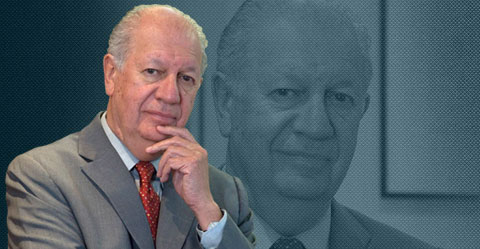The fact that Chile is considering a new Constitution is the result of 25 years of political evolution. With the return of democracy in 1990, a process of constitutional reform began that was finally consolidated in 2005 when the last vestiges of authoritarianism were swept aside.
After the economic crisis of 2008 and the emergence of new technologies citizens are empowered with a greater level of knowledge and information than ever before. Today, Pericles’ forum in Athens is the internet; there, millions of people can share their opinions and campaign for their demands to be acted upon. For this reason, a consensus and legitimacy for a new Constitution will only be achieved if it is born of agreement, allows space for different visions, and represents each and every one of us.
How should this challenge be approached? How can a Constitution be built from scratch? The issues to be addressed are complex but begin with rights. A certain number of citizens will say that they want to move towards a society of guarantees because a never-ending list of rights means no rights at all, other citizens, meanwhile, will say that they want robust constitutional protection of social rights.
Plenty will call for binding plebiscites. Finland, for example, has established an online platform on which the citizenry can propose issues for the parliament to debate and if one of these issues reaches a determined majority on the internet parliament is obliged to debate it.
Another crucial issue is the range of activity of the state apparatus. I would like to see a Constitution that enshrines an active State with a prominent role, especially after the crisis of 2008 when it became clear that the political response of market regulation was the only one that has helped to resolve the problem.
We also need to talk about the organization of the territory and the regions. The more regions, the lower the population density and so the greater the centralization. For example what is the difference between the regions of Arica, Iquique, Antofagasta and Atacama? They are all very similar: lovely beaches, a lot of fishing, a mining industry along the Andes and potential for tourism. In practice it is one large region. To achieve effective de-centralization we need greater population density and a critical mass to drive the fiscal and social measures needed to achieve the financial and political autonomy required to elect mayors and governors and even levy taxes.
Thinking of a new Constitution also involves the challenge of deciding upon the tools we should give it so that it is not set in stone like the present one. We need to think about the mechanisms for its reform for any future modifications and thus ensure that it can adapt to the changes that society demands, always properly reflecting the contemporary situation.
This is the invitation of #TuConstitución: to imagine a Magna Carta that conceives of a new Chile and expresses it in its principles, where we can debate the major issues that must be part of any constitution as well as the processes for adopting it.
Leave a comment




